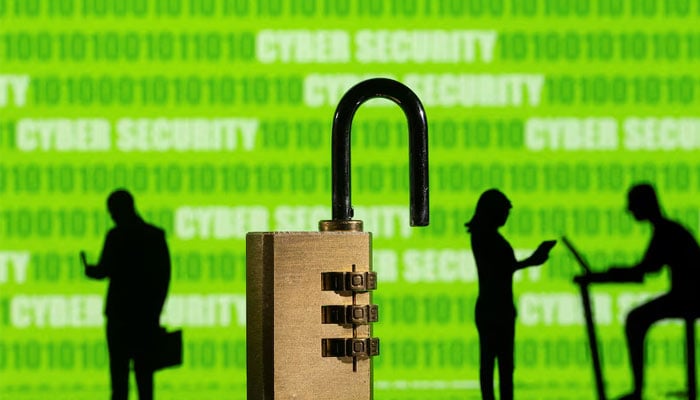Govt likely to table proposed tweaks to Peca law for stricter online content control next week
Proposed amendments are currently under negotiation with government’s political partners, claim officials
December 15, 2024

- Potential tweaks to propose stricter content control and penalties.
- Proposals include creation of authority to secure digital rights.
- Draft includes provisions for resolution of cases within 90 days.
The federal government is likely to present amendments to the controversial Prevention of Electronic Crimes Act (Peca) in parliament as early as next week, according to sources.
Officials, speaking anonymously due to the confidential nature of the discussions, confirmed to The News that the proposed amendments are currently under negotiation with the government’s political partners. If agreements are reached, the changes could be introduced in parliament for approval next week.
The amendments to Peca seek to establish two new authorities with extensive powers to regulate digital content, investigate breaches, and prosecute offenders.
According to a working draft of the Prevention of Electronic Crimes (Amendment) Act, 2024, available with The News, the proposed changes include new definitions, the establishment of regulatory and investigative bodies, and stricter penalties for disseminating "false" information.
New definitions
The amendments introduce several new definitions under which individuals can be prosecuted. For example, “aspersions” is defined as "spreading false and harmful information that damages a person’s reputation". A “complainant” refers to any person filing a complaint under the Act, whether a victim or someone with a “substantial reason” to believe an offence is occurring.
A “social media platform” is defined as any website, app, or service that allows users to create public profiles and share content.
Pakistan Digital Rights Protection Authority
A significant proposal within the amendments is the creation of the Pakistan Digital Rights Protection Authority (DRPA), which will be headquartered in Islamabad, with additional offices in provincial capitals as needed.
The DRPA would take over some of the responsibilities currently held by the Pakistan Telecommunication Authority (PTA).
The DRPA’s broad mandate includes:
- Regulating social media content
- Investigating and prosecuting complaints
- Issuing guidelines to stakeholders
- Ordering the removal, blocking, or temporary suspension of content
The Authority will be headed by a chairperson and six members, all appointed by the federal government for a three-year term. The federal government will also retain the power to issue binding policy directions to the DRPA.
Additionally, the Act provides legal immunity to government officials and DRPA members acting "in good faith" under its provisions.
Content blocking
The DRPA will have the authority to direct social media platforms to block or remove content deemed objectionable. Platforms will be required to register with the DRPA, pay a fee, and comply with the conditions set by the Authority.
The draft outlines categories of content that may be blocked, including material that:
- Violates the “glory of Islam” or the “ideology of Pakistan”
- Incites violence, terror, or public disorder
- Is designed to cause fear, preventing the public from carrying out their lawful activities or business
- Promotes hatred on religious, sectarian, or ethnic grounds
- Contains obscene or pornographic material
- Defames individuals or entities
- Violates copyrights or intellectual property rights
- Disseminates false or fake information
- Contains "aspersions" against constitutional institutions, such as the judiciary, armed forces, or parliament
- Encourages terrorism or other forms of violence
- Amounts to intimidation or blackmail
Content related to remarks expunged from parliamentary proceedings and statements from proscribed organisations will also be prohibited.
In cases of violations, the DRPA can recommend the federal government block entire social media platforms.
New tribunals and penalties
The draft also proposes the establishment of Digital Rights Protection Tribunals. Each tribunal will be comprised of a chairperson qualified to be a High Court judge, a journalist registered with a press club, and a software engineer. Tribunals must resolve cases within 90 days, with appeals allowed to the Supreme Court within 60 days.
Stricter penalties have also been proposed. Individuals who deliberately disseminate “fake or false information” through an information system could face up to five years in prison. If the offence involves women or children, the sentence increases to seven years.
Aggrieved individuals will be able to file complaints with the DRPA, which must issue orders for content removal or blocking within 24 hours.
The amendments also propose transferring the investigative and prosecutorial powers related to online content to a newly established National Cyber Crime Investigation Agency (NCCIA).
Government’s point of view
The government officials, who spoke to The News on condition of anonymity, said that the draft amendments were still under discussion with political allies and had not yet been finalised. However, they argued that the changes were necessary to address the "rise of online disinformation and misinformation."
One official mentioned that the government is seeking to have social media platforms establish offices in Pakistan and is already in talks with Meta. However, X (formerly Twitter) has refused to comply.
It is noteworthy that X has been officially blocked in Pakistan since February.
When asked why the PTA was being replaced by the DRPA, an official explained that the PTA is overwhelmed with thousands of pending complaints, which necessitates a new body to manage the workload related to online complaints. The PTA, however, will continue its work related to the telecom sector.
When pressed about how the government intends to define “fake” or “false” news, or how it would determine whether misinformation was spread deliberately, the officials were unable to provide a clear explanation.
The minister of state for Information Technology did not respond to repeated requests for comments.











